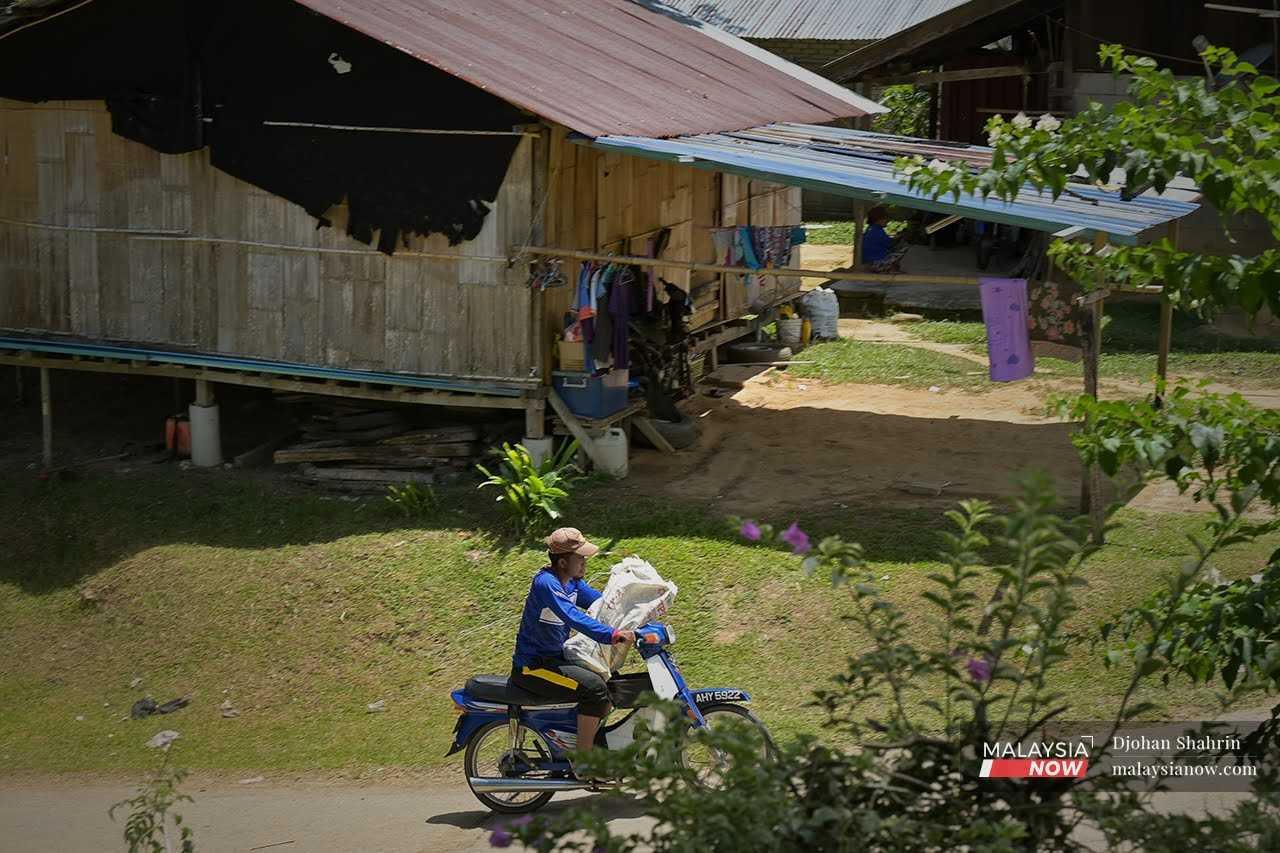In Gerik, changing times leave Orang Asli youth stuck at crossroads
Their traditional skills are on the decline but they are ill-equipped to deal with modern life outside their village.
Just In
Surrounded by the points of the Titiwangsa range, a small settlement of Orang Asli villagers is shielded from view.
Just a few kilometres from Tasik Banding, Gerik in Perak, Kampung Sungai Raba is home to 47 families from various ethnic backgrounds.
It was developed in the 1990s as a resettlement programme for the Orang Asli.
Once upon a time, it was bustling with economic activities, as residents cultivated a wide range of crops including rice, rubber, coconut, and durian.
But due to attacks by "orang besar" – a term used by the villagers for wild elephants – the fields have been idle for some time.
Now, rubber is the only crop that remains in the village.

Some of the older villagers are also skilled in gathering forest products, and can collect two to three kilogrammes of agarwood from the forest to sell.
Village chief Ali Pintu said they would also search for rattan and kelah fish to sell in the Banding market.
"We can earn RM60 to RM80 by selling forest products, but that money will be gone after buying necessities," he said in a recent interview with MalaysiaNow.
Ali, who manages a tilapia fish pond to make ends meet, said the situation had left many Orang Asli youth at a crossroads as they were not equipped with the skills needed to face life outside of their village.
One of them, Mohd Faizal Hamid, migrated to Selangor after finishing secondary school and worked at a supermarket there for several years.
He earned up to RM2,000 a month but had many expenses to juggle, including rent and utility bills.
Eventually, he returned to the village to deal with some family matters.

"But I could not go back to Selangor after that due to the movement control order in place at the time," he said.
Now 21, he works at an agriculture site in the village. There, they sow timber seedlings obtained from the villagers or collected from the forest which they later sell.
Other young people had similar stories to tell, including some who were deceived by job agents and others who were not paid what they were promised.
Wary of being duped again, they are now reluctant to seek work outside the village.
Some of them work with the World Wildlife Fund or WWF, setting up cameras in the forest for the organisation.
For Ali, the situation is worrisome as he believes the youth are at risk of losing their traditional skills. At the same time, he said, they are unable to face the challenges of the modern world outside the village.
"The new generation is even worse now. They know nothing. They cannot build houses or even tend to rubber trees.
"If we had developed the economy of the Orang Asli like the Malays, we would have inherited our fathers' skills or continued our education," said Ali.
One of his children works at a supermarket, but despite having worked for five years, is still making just RM1,200 a month.

The village itself was once promised rubber plantations after logging activities put paid to the nearby timber. However, these never materialised.
Education is another problem in the village, although the children attend school from kindergarten to the secondary level.
Once in secondary school, they struggle with the Form Five Sijil Pelajaran Malaysia examination.
"Government representatives say our children can go to university if they want to," Ali said.
"But we face many problems in terms of costs, management and information."
Ali himself has nine children and knows the value of education and knowledge.
He sends some of them to religious school to learn the Quran in the hope that at least they will be able to work for the state religious council.
Another youth, Muhammad Naim, also studied religion and is now the village imam. He also manages a rose garden on his family's land.
"We recently started cultivating this plant and harvested it once last year.
"We plan to expand the cultivation because, for now, we are only utilising half of the land area," he said.
But he, like many others, still worries about the elephants that roam through the forest and the devastation they can unleash on their crops and plants.
Subscribe to our newsletter
To be updated with all the latest news and analyses daily.
